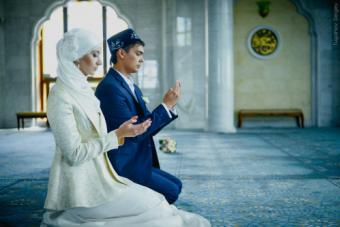To the question tell about the boar family asked by the author Yulia Yulia Yulia Yulia the best answer is At the head, in the center, on top of the family is placed
Marfa Ignatievna Kabanova, a rich merchant's wife, with her
patriarchal upbringing and morality.
Here are the other members of her family:
daughter Barbara, a wayward, cunning girl, not
accustomed to obey even the mother;
This heroine easily adapts to the laws
"dark kingdom", easily deceives others.
It became a habit for her.
Varvara claims that it is impossible to live otherwise:
their whole house is based on deceit.
"And I was not a liar, but I learned when it became necessary."
She is free from obligations, binds nothing
her with her family, except for unpleasant memories,
no family affection, feelings of a daughter
gratitude, so she calmly leaves with Curly,
not caring about the consequences.
Yes, and the external circumstances that have developed around her
broke her will, destroyed her inner world.
son Tikhon,
in which all manifestations of the living human soul
so crushed
constant (from birth) dominion of the mother,
that he cannot resist her tyranny.
Tikhon is a weak man, brought up in obedience,
respects the opinion of his mother.
However, this is only the outer side of his behavior.
He does not want to live according to the laws of house building.
And yet he cannot disobey the domineering mother and
stand up for the woman you love.
Therefore, Tikhon seeks solace in drunkenness.
Mother with her imperious character suppresses in him
a man, making him weak and defenseless.
Daughter-in-law Katerina, a meek but sensitive woman,
emotional.
The mother-in-law tries to humiliate Katerina, and she only
remains to be endured.
Passionately hating the despotism around her,
Katerina does not want to live on her knees.
Trying to find freedom is associated with fragile hopes
on Boris.
Love for Boris is for Katerina a departure from
dullness and monotony of everyday joyless
life.
But Boris was too weak to
help Katerina break free.
Katerina understands with horror that she will have to
live with her husband and endure the orders of Kabanikhi.
Katerina's soul can't stand it.
Her position becomes hopeless.
You can't live in your husband's house.
There is nowhere to go.
To parents? Yes, by that time they would have tied her up and
brought to her husband.
Captivity is the name of her main enemy.
With all her being Katerina felt
that living in a "dark kingdom" is worse than death.
And she preferred death to captivity.
Answer from Yatyanaka[guru]
The family is an integral part of any society. The city of Kalinov is no exception, and therefore social life here is built on the same principles as family life.
Most fully, Ostrovsky presents us with the Kabanov family, at the head, in the center, on top of which is placed Marfa Ignatievna Kabanova, a wealthy merchant's wife, with her patriarchal upbringing and morality. Next are other members of her family: daughter Varvara, a wayward, cunning girl, not used to obeying even her mother; son Tikhon, in whom all manifestations of the living human soul are so crushed by the constant (from birth) dominion of the mother that he cannot resist her tyranny; daughter-in-law Katerina, a meek, but subtly sensitive, emotional woman.
In Ostrovsky's drama "Thunderstorm", the spontaneous love of the main character puts her against the ignorant Kalinovsky society, living according to the dying house-building laws, and, among other things, against the Kabanov family. Both this society and this family reject Katerina as an alien phenomenon that violates all laws and orders, and therefore threatens this society. And the heroine herself, being a product of this very society, cannot forgive herself “such a sin” and therefore commits suicide. Sad end to this drama. “But in Katerina we see a protest against Kaban's concepts of morality,” wrote N. A. Dobrolyubov in the article “A Ray of Light in the Dark Kingdom,” a protest carried to the end, proclaimed both under domestic torture and over the abyss ...
The image of the "dark kingdom" in the work "Thunderstorm" embodies the provincial town of Kalinov. The poor in it are forced to work around the clock, rich people prefer to spend time behind high fences and "eat" everyone who is in a state of dependence on them. The customs of the patriarchal merchant class are personified by the Kabanov family.
Marfa Ignatievna, a wealthy merchant's wife, is called nothing more than "Boar". This nickname gives the impression of something unpleasant. The heroine has a difficult character. She is despotic, power-hungry.
Kabanikha does not recognize anything new and believes in the power of rituals. She loves children in her own way, but considers them incapable of making their own choices. Marfa Ignatievna does not tolerate objections. Son Tikhon tries to be out of the house as often as possible so as not to be influenced by her, and daughter Varvara learns to deceive. Only Katerina, Kabanikh's daughter-in-law, can neither pretend nor go somewhere. She believes in the best and cannot stand the cruel morals that reign in the family.
Readers can only remember Tikhon as the son of Kabanikh - this is exactly the description the author gives him at the beginning of the work. The hero has a weak character. His aspiration
Getting out of control is expressed in spree away from home. Tikhon loves his wife and does not want to hurt her. He is at odds with himself and cannot choose between his overbearing mother and Katerina. Kabanov opposes Marfa Ignatievna when it is already too late: his wife passes away.
The character of Varvara Kabanova can be described by her name: "barbarian, foreigner." As long as the heroine manages to deceive her mother, she does not enter into open conflict. “If only everything was sewn and covered” - such a rule is true for the Kabanovs' house. As soon as the secret becomes clear, and Kabanikha tries to restrict her daughter's freedom, Varvara runs away. There is no doubt that her ability to adapt to circumstances will prove useful.
Katerina was never able to become part of the Kabanov family. She spends most of her time reminiscing about the past. A young woman dreams of flying like a bird, of being free. Nothing can keep her in the "dark kingdom": Boris does not pass the test of love, Tikhon does not dare to object to his mother ... A thunderstorm begins in Katerina's life. She dies, remaining proud and independent.
Thus, the Kabanov family in the play is represented by several characteristic images. Similar people can be found in different cities. Ostrovsky gives an exhaustive description of the patriarchal world and the people who live in it.
(No ratings yet)
Essays on topics:
- Beginning of the 19th century. The city of Kalinov, standing on the steep bank of the Volga. In the first act of the play, the reader sees a public city garden. Here...
- In the drama “Thunderstorm”, the younger generation is represented very widely: this is Katerina, her husband Tikhon, beloved Boris, Varvara, Kudryash. Considering the theme of the essay...
- A. N. Ostrovsky is a great Russian playwright. He was the first in Russian literature to lift the veil over the life of the merchants, to show the powerlessness of women...
- Tikhon and Boris became the men who predetermined the fate of the main character in Ostrovsky's play "Thunderstorm" Katerina. For the first time Tikhon Kabanov we...
How does this fragment show the unfavorable family relations in the Kabanovs' house?
STEP 1
Phenomenon 5
Kabanova, Kabanov, Katerina and Varvara.
Kabanova. If you want to listen to your mother, then when you get there, do as I ordered you.
Kabanov. But how can I, mother, disobey you!
Kabanova. There is not much respect for elders these days.
Barbara (to herself). Do not respect you, how!
Kabanov. I, it seems, mother, not a step out of your will.
Kabanova. I would have believed you, my friend, if I had not seen with my own eyes and heard with my own ears, what is now the reverence for parents from children! If only they remembered how many diseases mothers endure from children.
Kabanov. I mama...
Kabanova. If a parent that when and insulting, in your pride, says so, I think it could be transferred! A! How do you think?
Kabanov. But when did I, mother, not endure from you?
Kabanova. Mother is old, stupid; well, and you, smart young people, should not exact from us, fools.
Kabanov (sighing, to the side). Oh you, Lord! (To the mother.) Yes, mother, do we dare to think!
Kabanova. After all, out of love, parents are strict with you, out of love they scold you, everyone thinks to teach good. Well, now I don't like it. And the children will go to people to praise that the mother is grumbling, that the mother does not give a pass, she is dying from the light. And, God forbid, one cannot please the daughter-in-law with any word, well, the conversation started that the mother-in-law was completely stuck.
Kabanov. Something, mother, who is talking about you?
Kabanova. I didn’t hear, my friend, I didn’t hear, I don’t want to lie. If only I had heard, I would not have spoken to you, my dear, then. (Sighs.) Oh, a grave sin! That's a long time to sin something! A conversation close to the heart will go on, well, you will sin, get angry. No, my friend, say what you want about me. You will not order anyone to speak; they won’t dare in the eyes, so they will become behind the eyes.
Kabanov. Let your tongue dry.
Kabanova. Complete, complete, don't worry! Sin! I have long seen that your wife is dearer to you than your mother. Since I got married, I don’t see the same love from you.
Kabanov. What do you see, mother?
Kabanova. Yes, everything, my friend! What a mother cannot see with her eyes, she has a prophetic heart, she can feel with her heart. Al wife takes you away from me, I don’t know.
Kabanov. No, mother! what are you, have mercy!
Katerina. For me, mother, it’s all the same, that my own mother, that you, and Tikhon loves you too.
Kabanova. You would, it seems, could be silent, if you are not asked. Do not intercede, mother, I will not offend, I suppose! After all, he is also my son; you don't forget it! What did you jump out in the eyes of something to poke! To see, or what, how you love your husband? So we know, we know, in the eyes of something you prove it to everyone.
Barbara (to herself). Found a place to read.
Katerina. You are talking about me, mother, in vain. With people, that without people, I'm still alone, I don't prove anything from myself.
Kabanova. Yes, I didn’t want to talk about you; and so, by the way, I had to.
(A.N. Ostrovsky, "Thunderstorm".)
Show full text
The basis of the love of a strong family is love and trust. In the house of the Kabanovs family relationships based on despotism on the one hand and obedience on the other. Numerous remarks help to understand the true thoughts and feelings of the characters, hidden from others by flattering phrases: “Yes, dry your tongue!”, “Yes, do we dare to think, mother!”. Kabanova is pleased with such an attitude from the family, although in the depths
Cruel morals, sir, in our city, cruel!
A.N. Ostrovsky
In Ostrovsky's drama "Thunderstorm" the problems of morality are widely posed. On the example of the provincial town of Kalinov, the playwright showed the truly cruel customs reigning there. The personification of these morals is the house of the Kabanovs.
Let's get acquainted with its representatives.
Marfa Ignatievna Kabanova - champion of the old world. Already the name itself draws us a heavy, heavy woman, and the nickname "Boar" complements this unpleasant picture. The boar lives the old fashioned way, in accordance with a strict order. But she observes only the appearance of this order, which she maintains in public: a good son, an obedient daughter-in-law. He even complains: “They don’t know anything, there is no order ... What will happen, how the old people will die, how the light will stand, I don’t know. Well, at least it’s good that I don’t see anything. ” In the house, real arbitrariness reigns. The boar is despotic, rude to the peasants, "eats" the household and does not tolerate objections. Her son is completely subordinate to her will, she expects this from her daughter-in-law.
Next to Kabanikha, who every day “grinds all her household like rusty iron,” the merchant Dikoy, whose name is associated with wild strength, is speaking. Wild not only "grinds and saws" members of his family. He also suffers from the men whom he deceives in the calculation, and, of course, the buyers, as well as his clerk Kudryash, a recalcitrant and impudent guy, ready to teach a lesson to the “scoldener” in a dark alley with his fists.
The character of Wild Ostrovsky described very accurately. For Wild, the main thing is money, in which he sees everything: power, glory, worship. This is especially striking in the small town where he lives. He can already easily “pat on the shoulder” of the mayor himself.
The images of Tikhon and Boris are developed insignificantly. Dobrolyubov, in a well-known article, says that Boris can be rather attributed to the setting than to the heroes. In the remark, Boris is distinguished only by his clothes: "All persons, except Boris, are dressed in Russian." This is the first difference between him and the inhabitants of Kalinov. The second difference is that he studied at a commercial academy in Moscow. But Ostrovsky made him a nephew of Wild, and this suggests that, despite some differences, he belongs to the people of the "dark kingdom". This is confirmed by the fact that he is not able to fight this kingdom. Instead of giving Katerina a helping hand, he advises her to submit to her fate. The same and Tikhon. Already in the list of actors it is said about him that he is “her son”, that is, the son of Kabanikhi. He really is more like just a son of Kabanikha than a person. Tikhon has no willpower. The only desire of this man is to break out from under the care of his mother in order to take a walk for the whole year. Tikhon is also unable to help Katerina. Both Boris and Tikhon leave her alone with their inner feelings.
If Kabanikha and Wild belong to the old way, Kuligin carries the ideas of enlightenment, then Katerina is at a crossroads. Raised and brought up in a patriarchal spirit, Katerina fully follows this lifestyle. Cheating here is considered unforgivable, and, having cheated on her husband, Katerina sees this as a sin before God. But her character is naturally proud, independent and free. Her dream to fly means breaking free from the power of her despotic mother-in-law and from the stuffy world of the Kabanovs' house. As a child, she once, offended by something, went to the Volga in the evening. The same protest is heard in her words addressed to Varya: “And if I get really sick of it here, they won’t hold me back by any force. I'll throw myself out the window, I'll throw myself into the Volga. I don’t want to live here, so I won’t, even if you cut me!” In Katerina's soul there is a struggle between the pangs of conscience and the desire for freedom. She does not know how to adapt to life, to be hypocritical and pretend, as Kabanikha does, she does not know how to look at the world as easily as Varya.
The customs of the Kabanovs' house drive Katerina to suicide.
The boar in the play "Thunderstorm" is the antagonist of the main character, Katerina. The contrast of the characters in the work is of decisive importance, revealing its meaning. The heroines are representatives of the opposite poles of the patriarchal world. If Katerina is spirituality, poetry, kindness, mercy, then Marfa Ignatievna is earthiness, love of money, pettiness.
The heroine's relationship with her family
An ignorant person, rude, superstitious, guardian of the old laws, despotic, loves to teach and keep everyone in fear - this is such a brief description of Kabanikh. This is a rich merchant's wife, widow, mother of Varvara and Tikhon, mother-in-law of Katerina. A woman comes to her family, she constantly saws, teaches, tries to keep the old order at home and gets angry when the youth does not listen to her. Kabanova Marfa Ignatievna firmly believes that order can be restored only if everyone is kept in fear.
The characteristic of Kabanikh allows the reader to understand the attitude of the Old Believers to the new world. The merchant's wife raised her children in fear, she wants to extend her power to her daughter-in-law. She constantly teaches her son, makes him punish his wife, keep her on a short leash. When Tikhon wonders why Katerina needs to be afraid of him, because she loves him, his mother yells at him. After all, if the daughter-in-law of her husband will not be afraid, then her mother-in-law and even more so.
The relationship of the merchant with others

The boar regularly goes to church, surrounds himself with hysterics, regularly gives alms to the poor. The merchant's wife talks to her godfather Wild on an equal footing. Although these two belong to the same world and support the old order, the characterization of Kabanikh shows that the woman still disdains the tyranny of the landowner. Marfa Ignatieva really keeps her family in fear, but she does this to maintain order in the house, and not because of her violent nature. In addition, the merchant's wife will never complain in public about problems in her family, as Wild does.
The last guardian of order
The image of Kabanikh is the embodiment of old belief, some medieval foundations. The merchant's wife suffers from the fact that her world is slowly collapsing. She sees that the youth does not support her, does not respect the old laws, and thinks in a new way. The woman is overwhelmed with some kind of apocalyptic expectations, she does not understand what will happen when all the old-timers die out, and there will be no one to resist everything modern. The House of the Kabanovs is almost the last stronghold where the dogmas of antiquity are revered.

The characterization of Kabanikha does not cause pity for this heroine, although at the end of the play not only Katerina, but also her mother-in-law suffered. For the merchant's wife, the public confession of her daughter-in-law, the rebellion of her son and the escape from her daughter's house were a terrible blow. But this woman did not understand that by her rejection modern world she led to the death of Katerina, ruined the life of Varvara and pushed Tikhon to drunkenness. No one got better from the rule of Kabanikhi. But she does not understand this, because the merchant's wife, even after so many misfortunes, continues to insist on her own.





